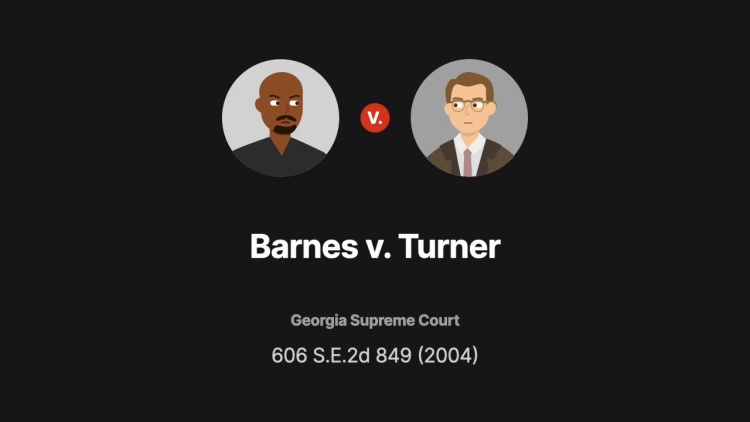Barnes v. Turner
Georgia Supreme Court
606 S.E.2d 849 (2004)
- Written by Noah Lewis, JD
Facts
In October 1996, William Barnes, Jr. (plaintiff) sold his auto-parts company to James and Rhonda Lipp for $220,000. The Lipps paid $40,000 at the closing and executed a 10-year promissory note for $180,000. A blanket lien on the Lipps’ assets secured the note. Attorney David Turner, Jr. (defendant) represented Barnes in the transaction, perfecting Barnes’s security interest by filing Uniform Commercial Code (UCC) financing statements in October 1996. Turner failed to inform Barnes that under § 9-515, the statements would need to be renewed in five years. In October 2001, no renewal statement was filed, and the security interest lapsed. The Lipps had subsequently pledged the collateral to two other lenders, who had perfected their security interests, making them senior to Barnes when his statement lapsed. The Lipps owed Barnes more than $142,000 under the promissory note when James Lipp filed for Chapter 7 bankruptcy. In 2002, Barnes sued Turner for malpractice. The trial court dismissed Barnes’s suit because based on the 1996 failure to inform, the four-year statute of limitations had run. The appellate court affirmed. The Georgia Supreme Court granted Barnes’s petition for certiorari.
Rule of Law
Issue
Holding and Reasoning (Fletcher, C.J.)
What to do next…
Here's why 907,000 law students have relied on our case briefs:
- Written by law professors and practitioners, not other law students. 47,100 briefs, keyed to 996 casebooks. Top-notch customer support.
- The right amount of information, includes the facts, issues, rule of law, holding and reasoning, and any concurrences and dissents.
- Access in your classes, works on your mobile and tablet. Massive library of related video lessons and high quality multiple-choice questions.
- Easy to use, uniform format for every case brief. Written in plain English, not in legalese. Our briefs summarize and simplify; they don’t just repeat the court’s language.





